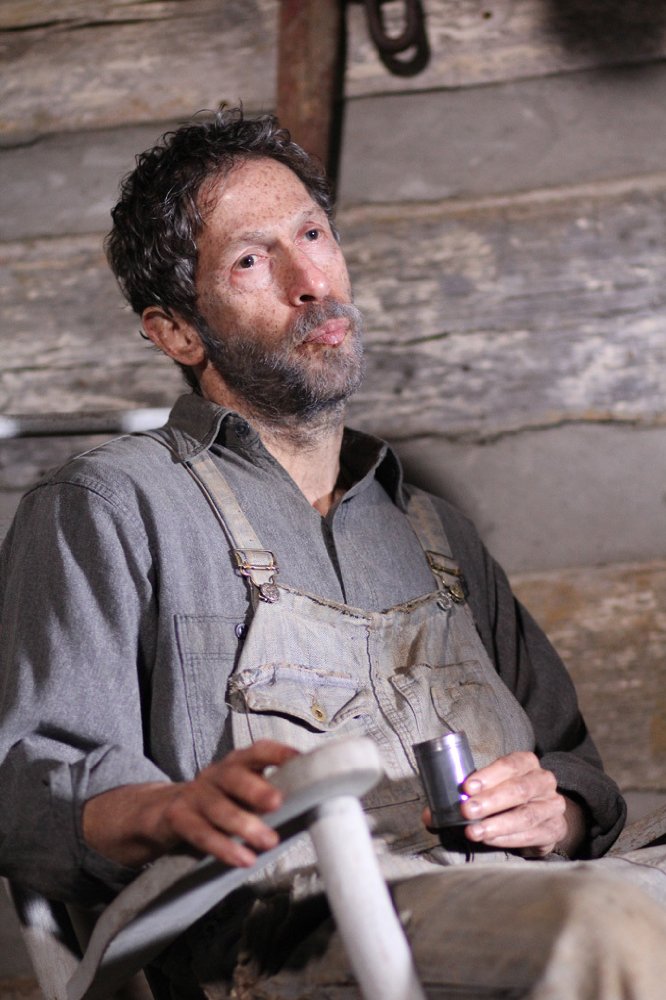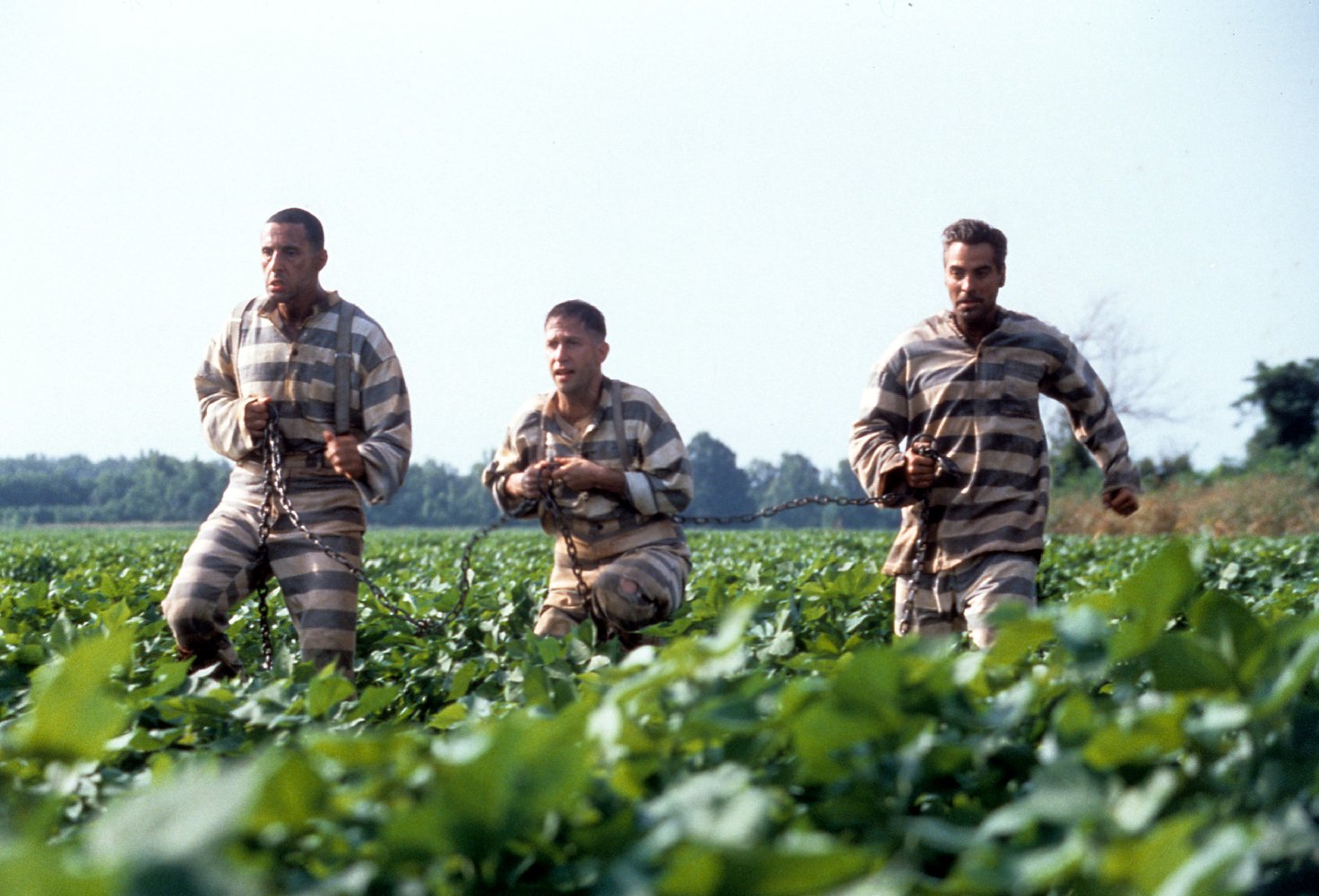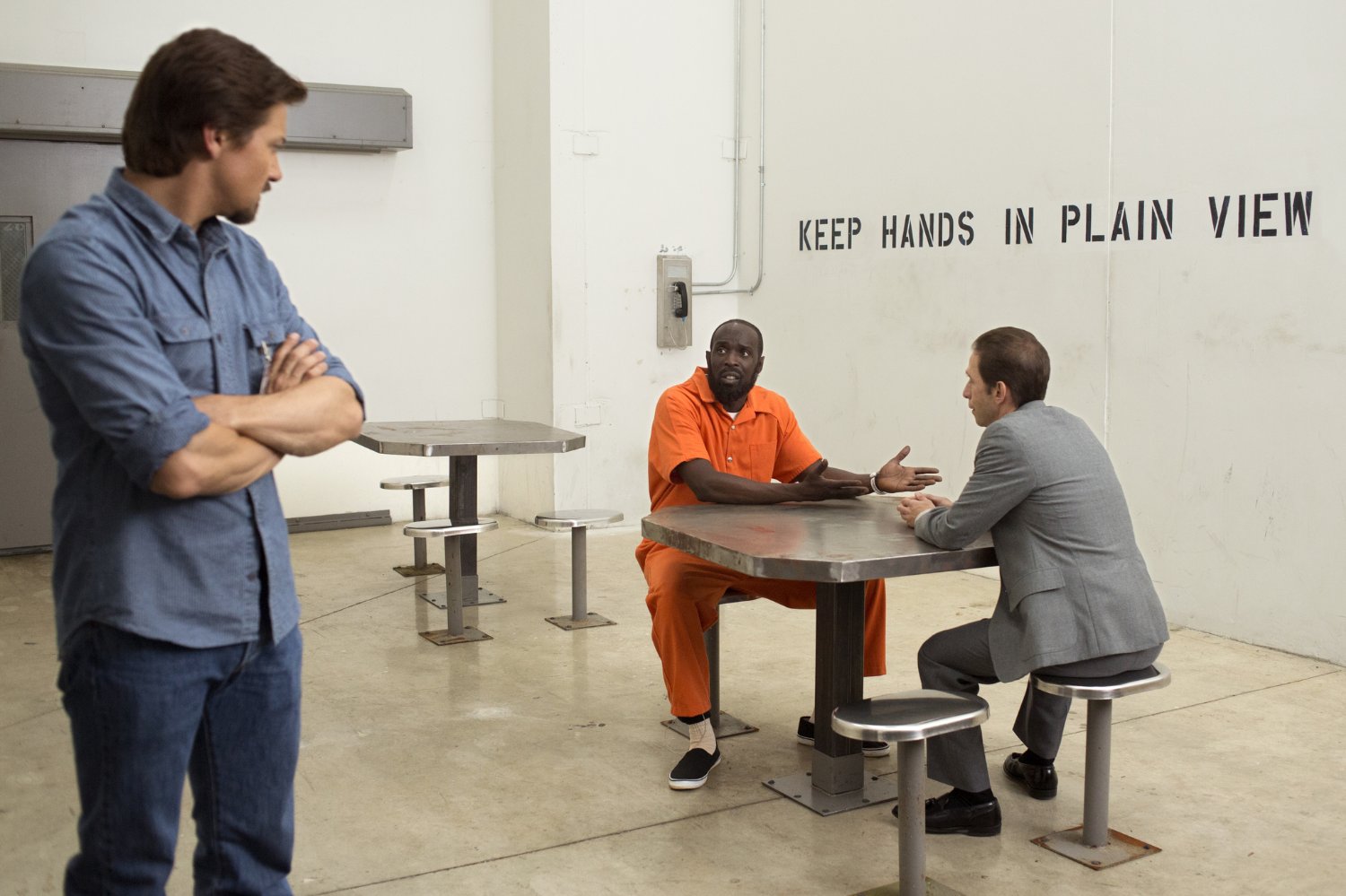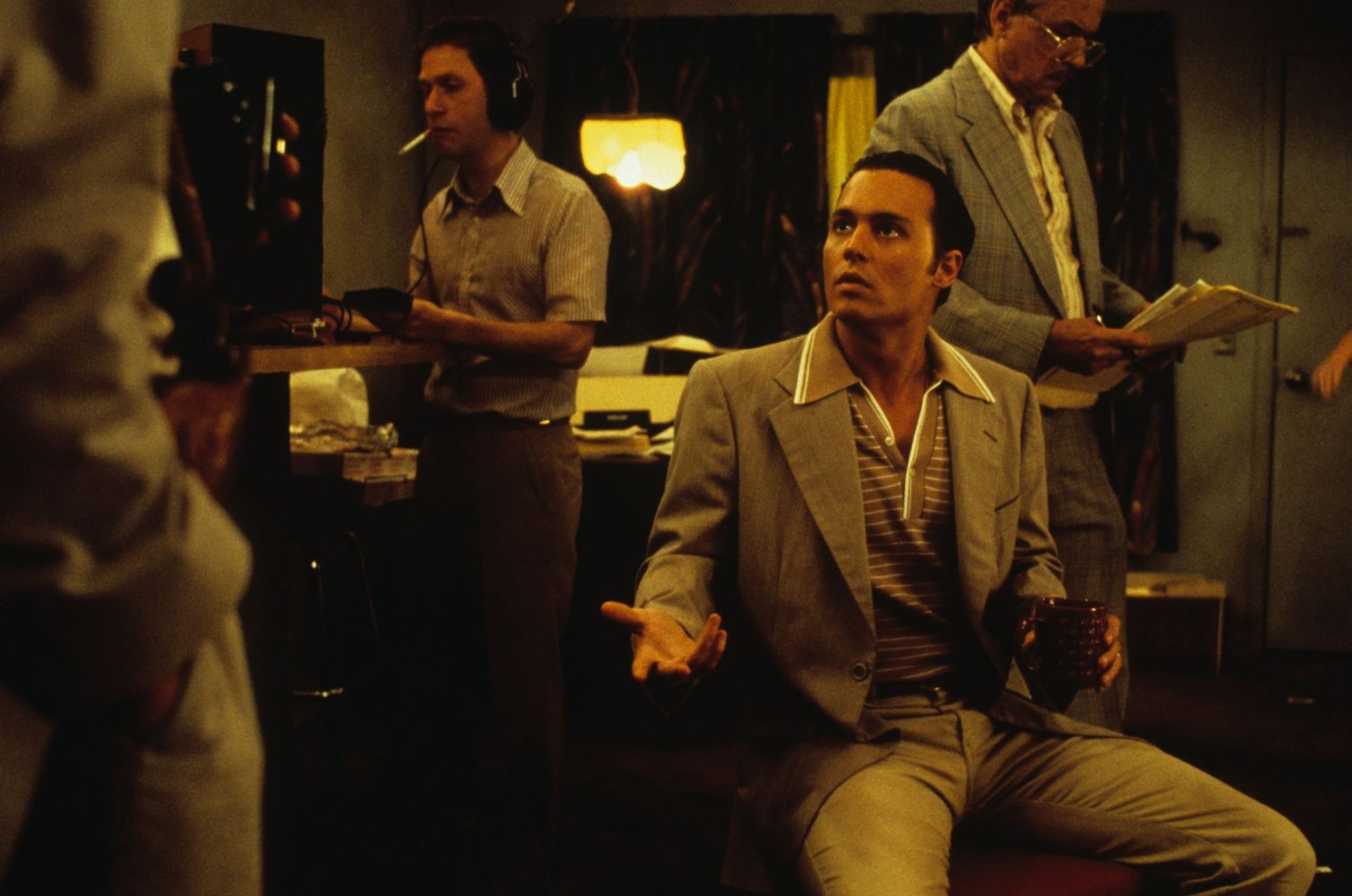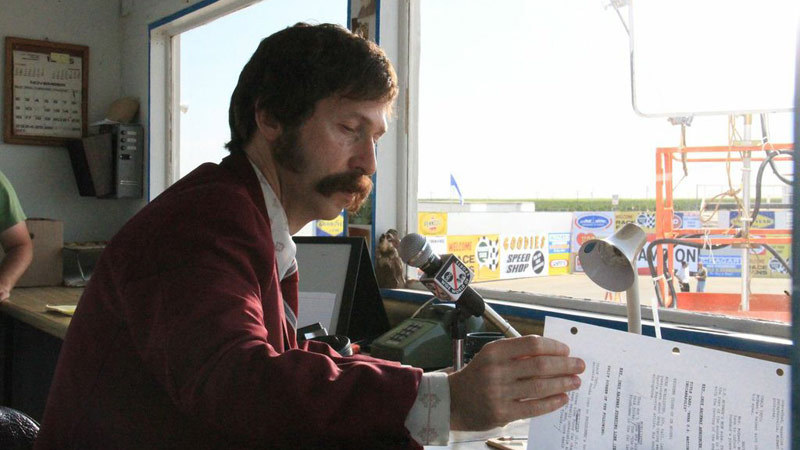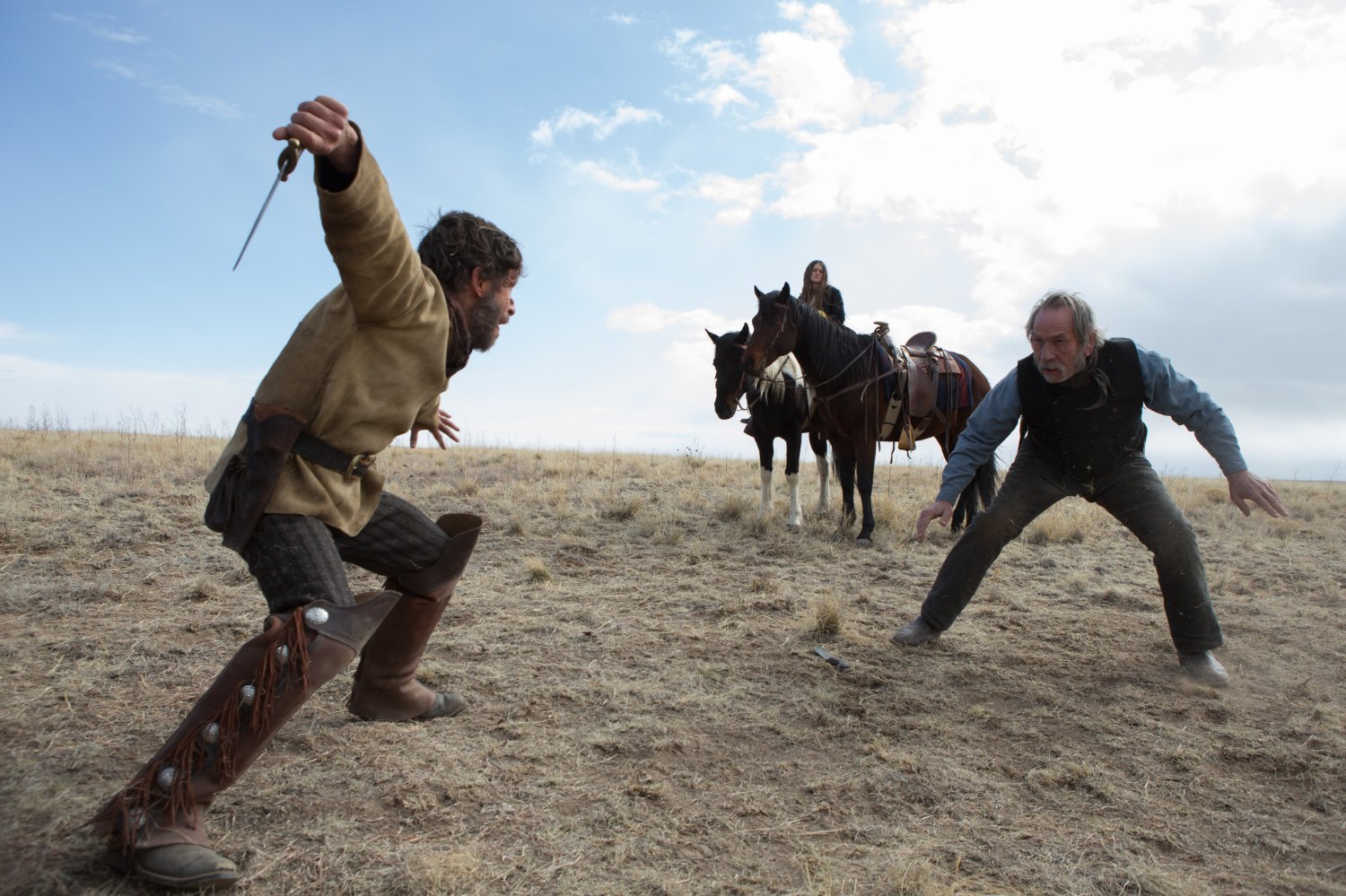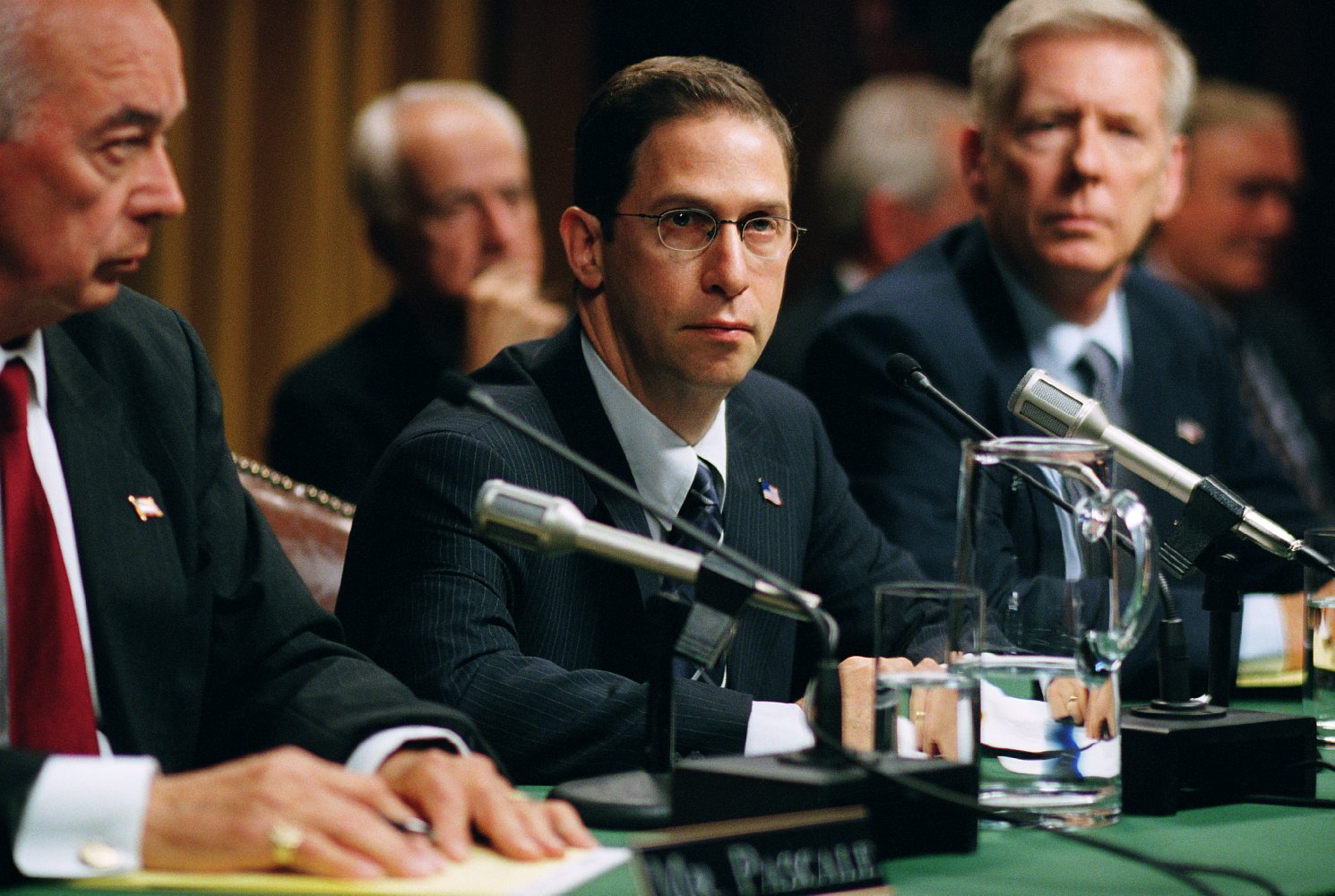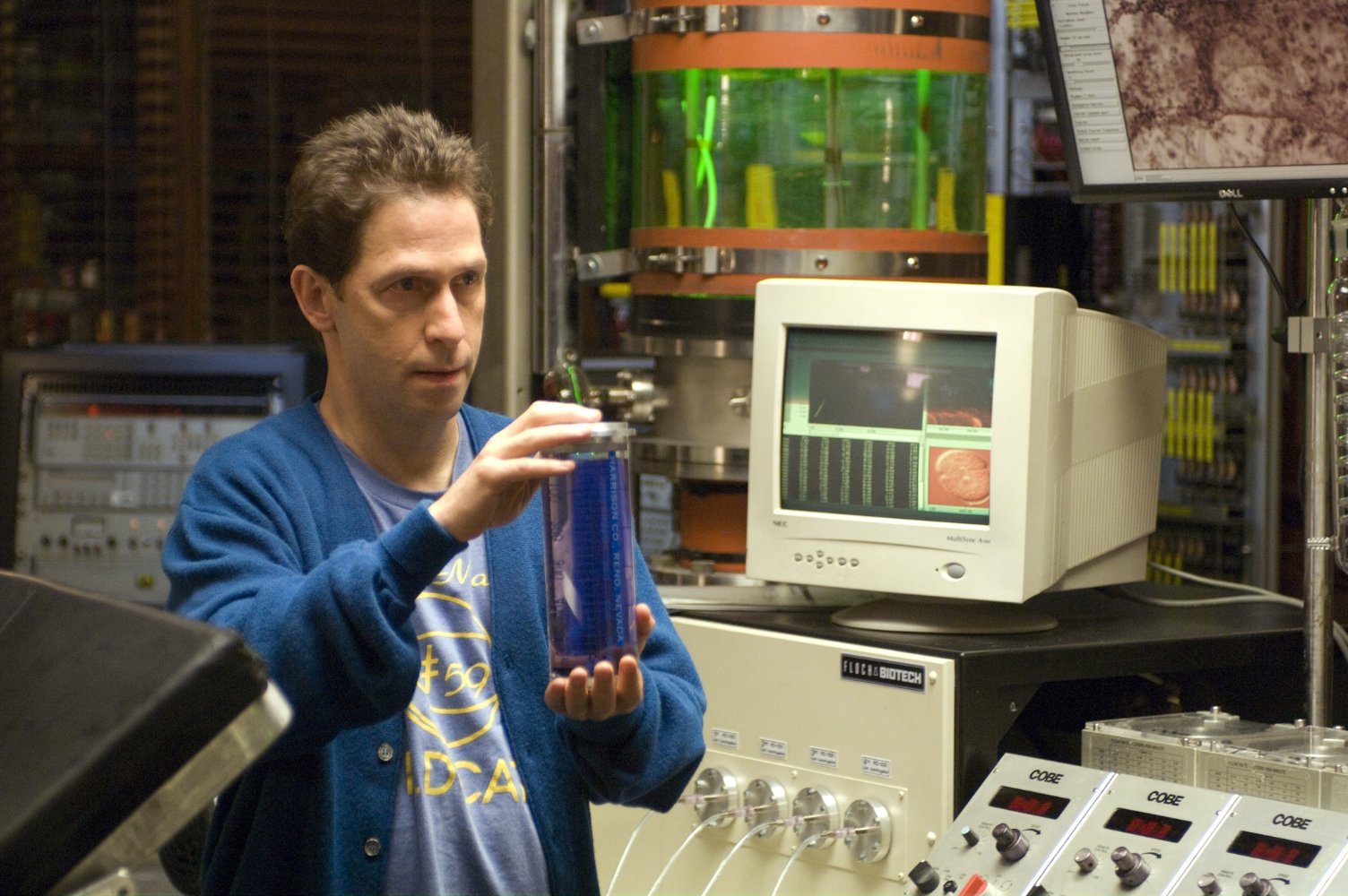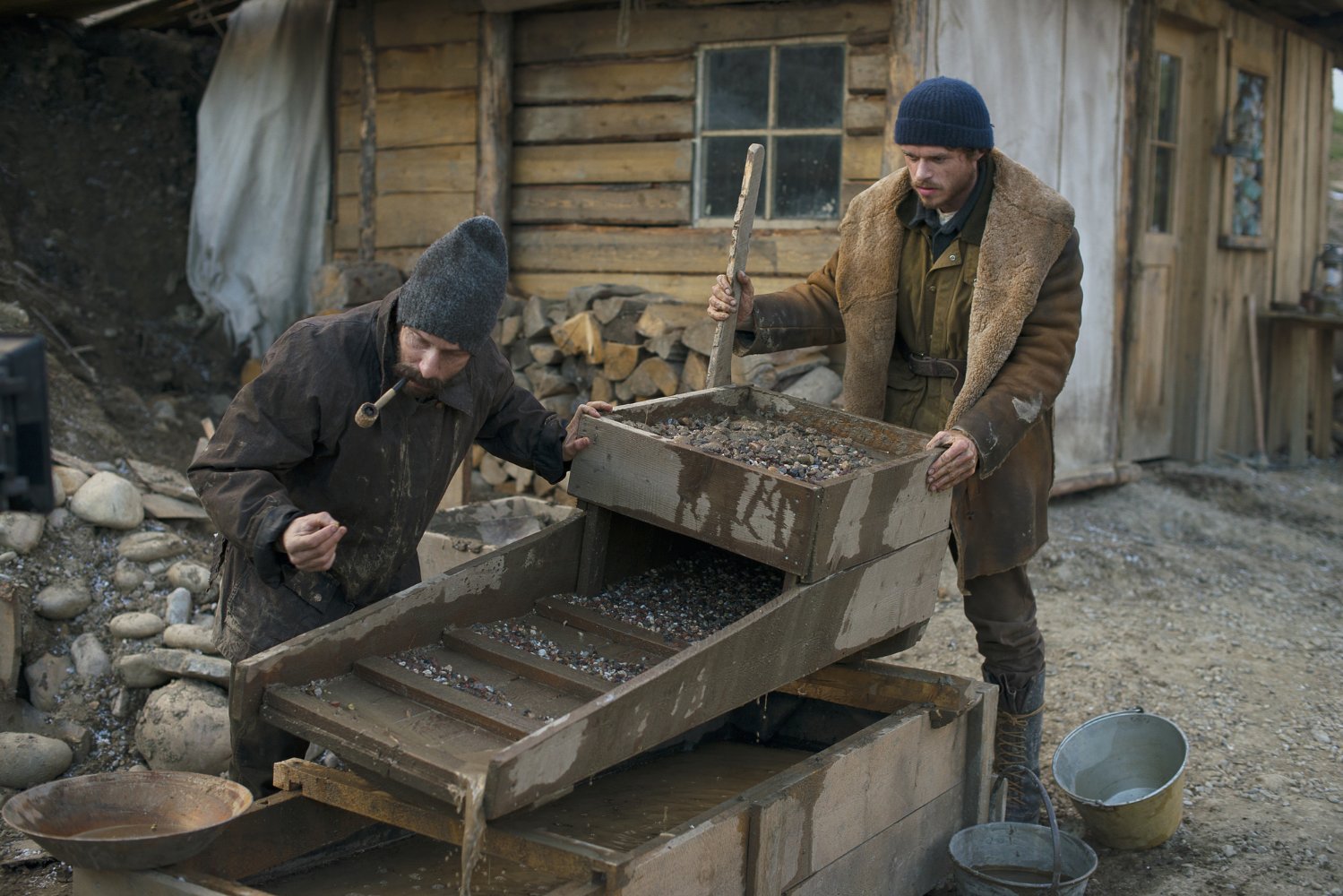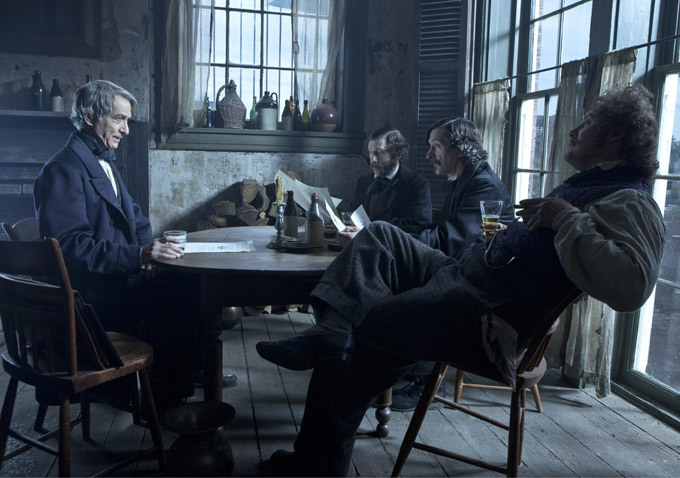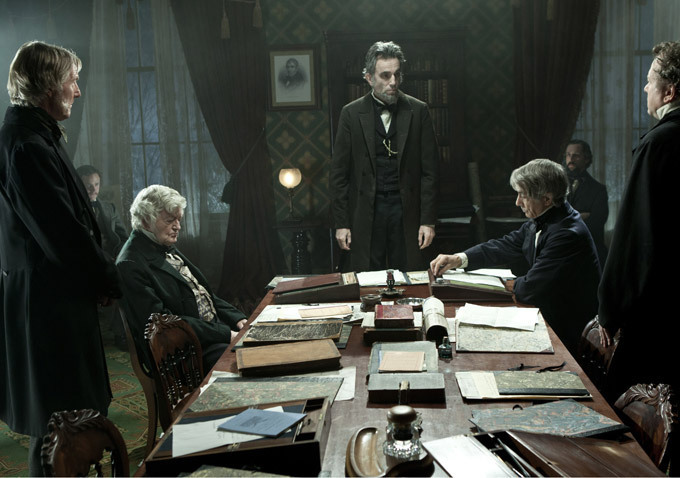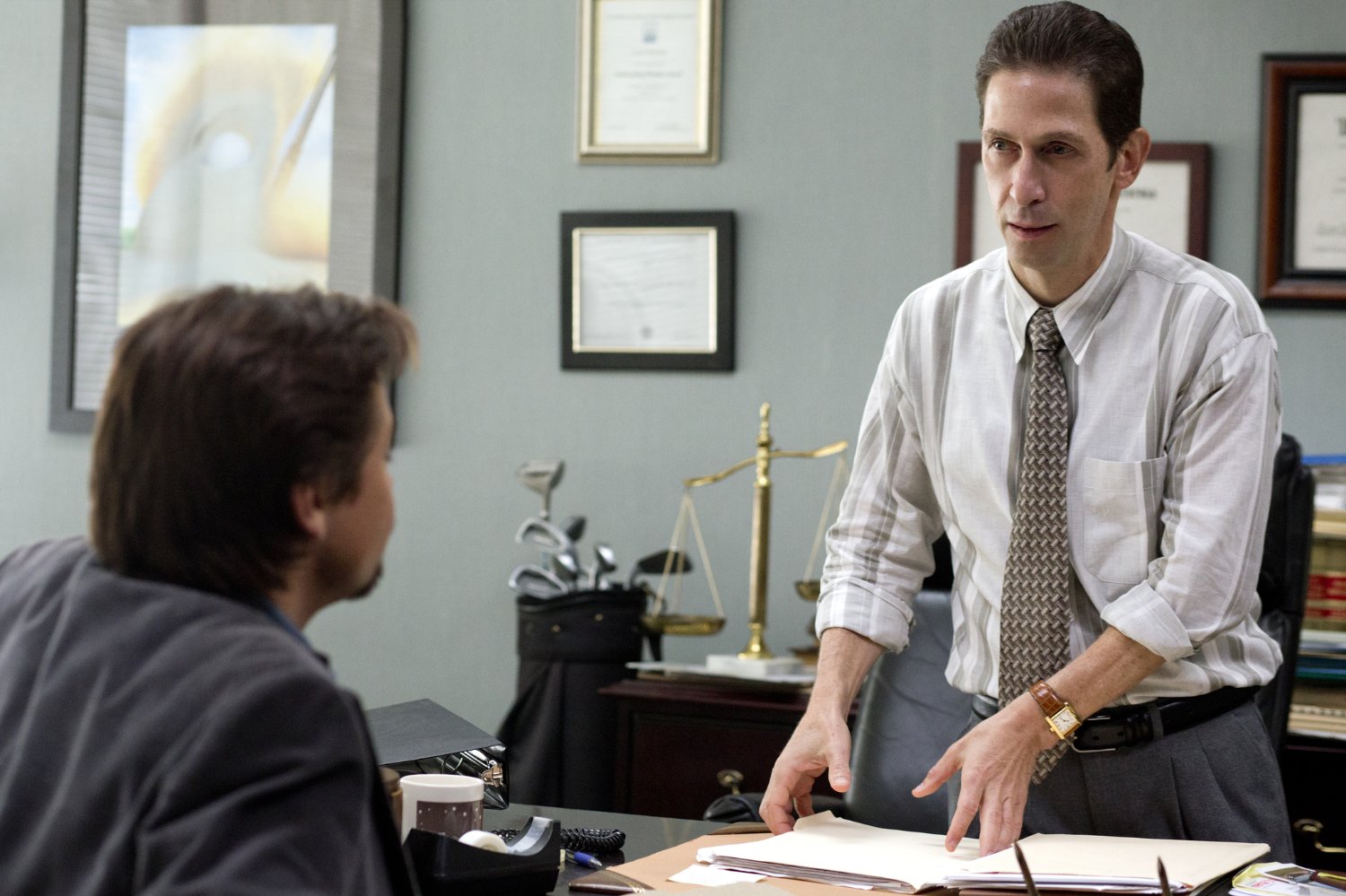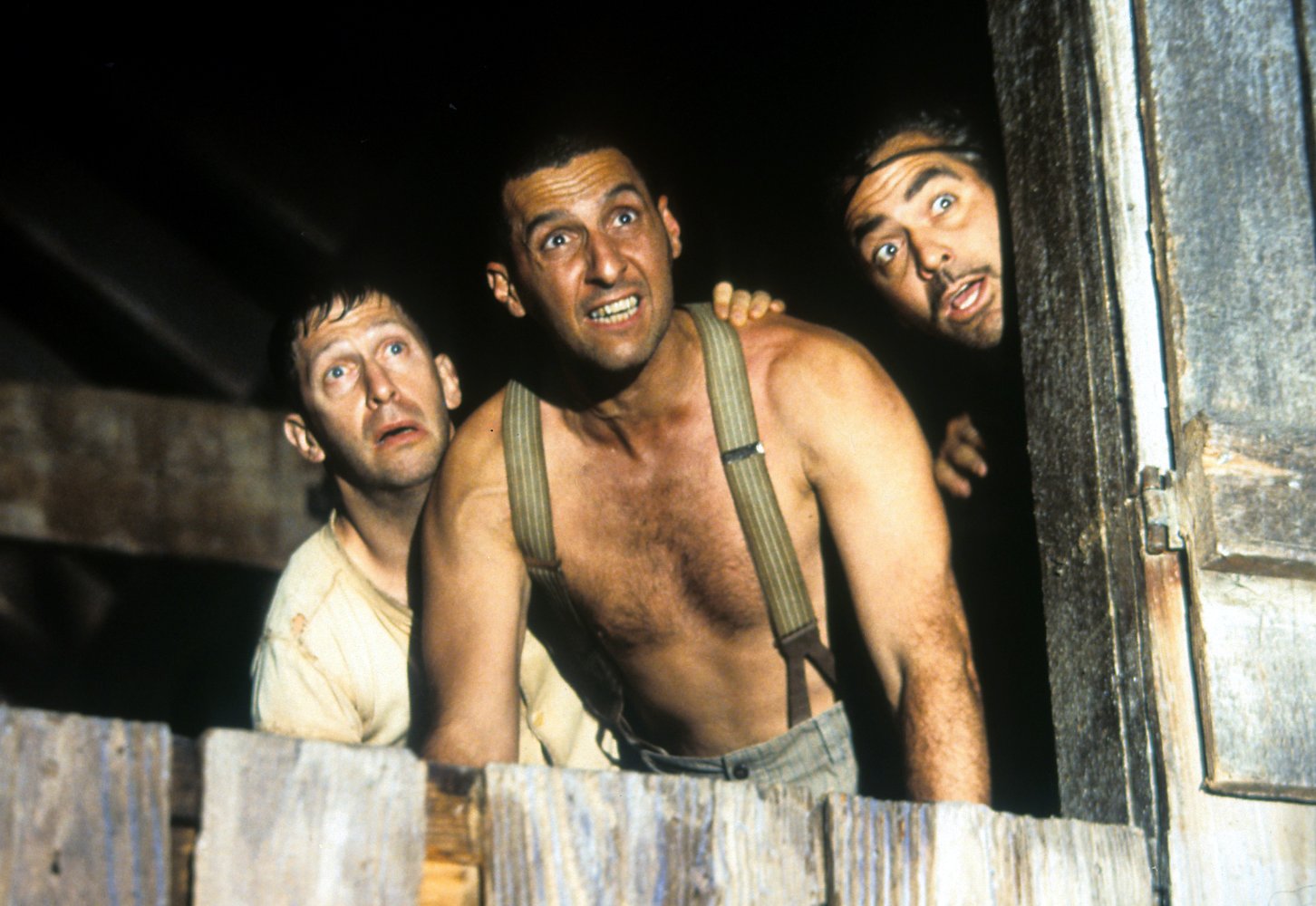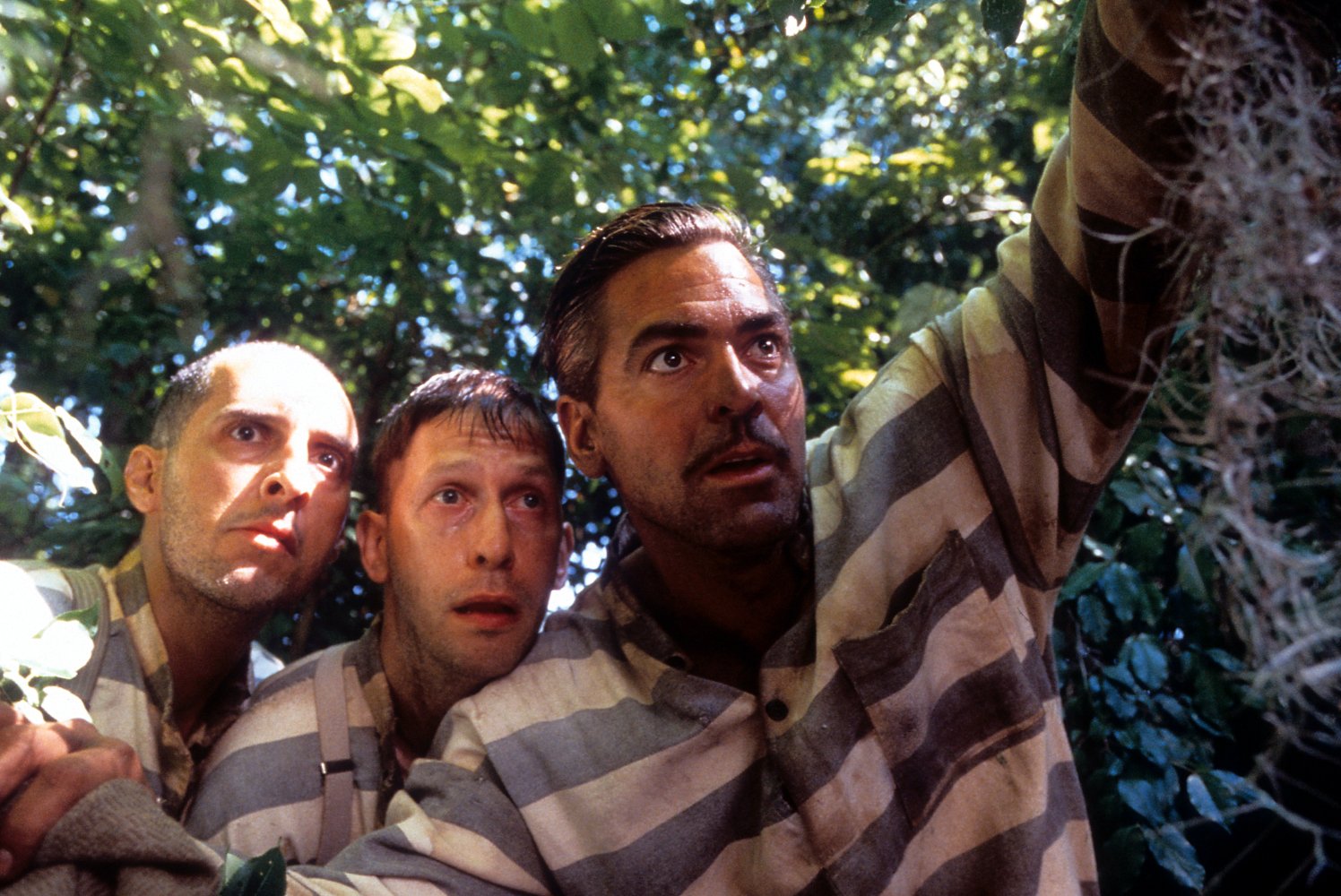
Tim Blake Nelson
Birthday: 11 May 1964, Tulsa, Oklahoma, USA
Height: 165 cm
Tim Blake Nelson was born on May 11, 1964 in Tulsa, Oklahoma, USA. He is an actor and director, known for O Brother, Where Art Thou? (2000), The Incredible Hulk (2008) and Lincoln (2012). He has been ...Show More
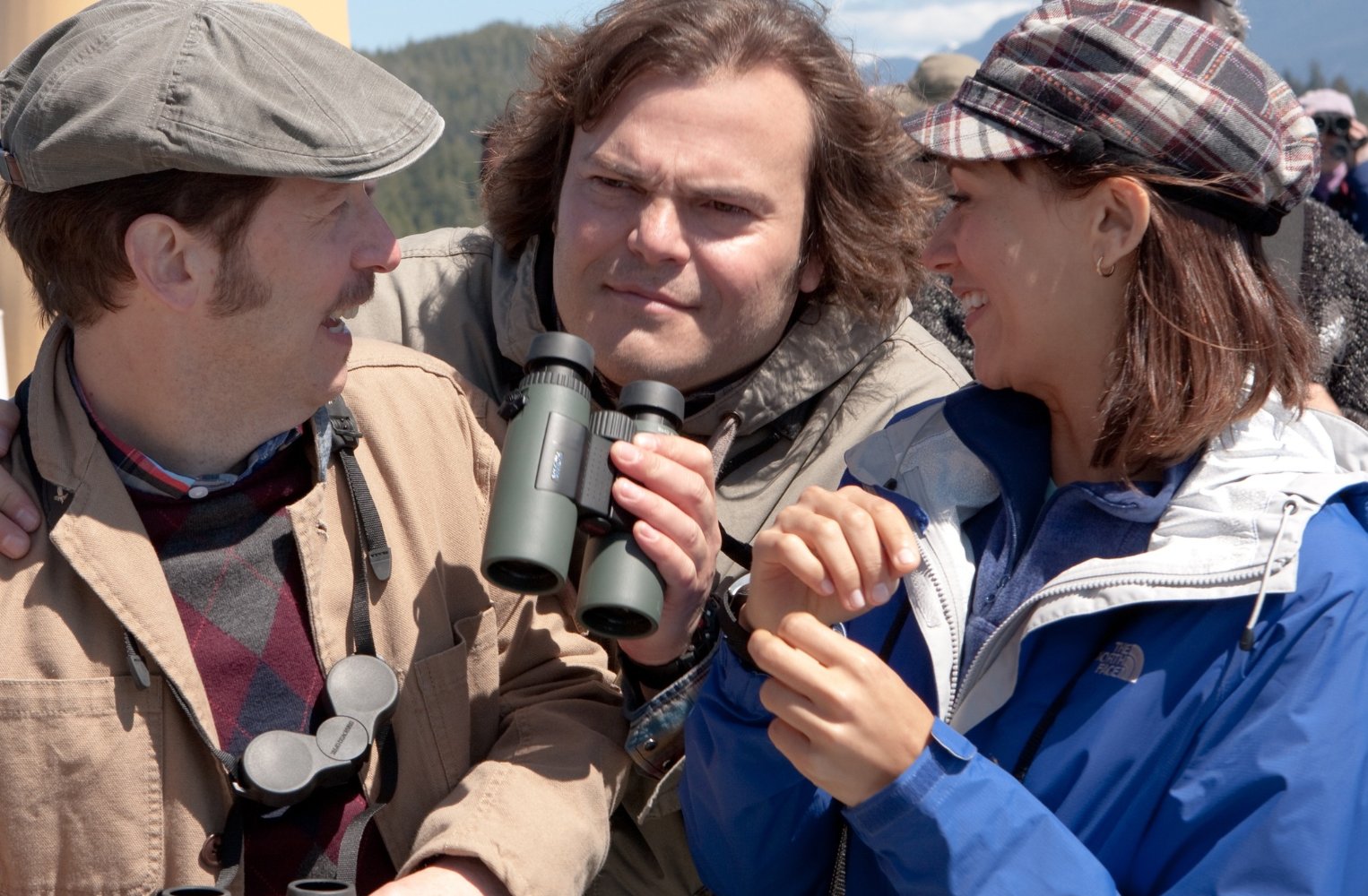
[on his film The Grey Zone (2001)] I thought if there is ever a moral dilemma, that's it. (...) You Show more
[on his film The Grey Zone (2001)] I thought if there is ever a moral dilemma, that's it. (...) You couldn't contrive anything more extreme - and this isn't contrived, it's true. I grew up going to synagogue every Saturday, Sunday school every Sunday and Hebrew school up to four times a week, and I never heard about the Sonderkommando. (...) When I read it, I was an able-bodied man in his 30's. That could have been me. So it also became very personal. [NYTimes 2001] Hide
[on Scooby-Doo 2: Monsters Unleashed (2004)] I had a great time working on that movie. I did it, qui Show more
[on Scooby-Doo 2: Monsters Unleashed (2004)] I had a great time working on that movie. I did it, quite simply, because I was on the phone in my son's room-who was five at the time-when I got the offer and I said to my agent, "Scooby Doo 2?" And my son said, "Scooby Doo 2!" And I was in. My sons were six and two at the time. And we got to be on the set of this movie of an iconic cartoon that still plays constantly in our home. I also got to say, "I would have gotten away with it if it weren't for you meddling kids and your dumb dog!" Hide
[on Minority Report (2002)] That came out of the blue. And I met Steven [Steven Spielberg] the day t Show more
[on Minority Report (2002)] That came out of the blue. And I met Steven [Steven Spielberg] the day that I went to shoot. As with the Coen's all you want to do is please this person and give him exactly what he wants. Steven had seen O Brother, Where Art Thou? (2000) and just gave me this role. The day I met him was the day I showed up. What was difficult about that role, and delightfully challenging at the same time, was that I had these long monologues to 'Tom Cruise')qv). That's pretty much the sum total of what the part is about. And I worked and worked and worked to memorize them so that they were word perfect. Because, again, like a Coen Brothers script it was clear rhythmically that the way this guy spoke was something that Steven wanted to be very specific and to be achieved with little deviation. Steven wanted Tom Cruise to be burrowing through this world populated by a lot of weird eccentric characters and I was to be one of those and the rhythm of the dialogue was quite specific so I learned it and took great pains to do so. Then I arrived on set and was summoned to Tom Cruise's trailer. To Tom Cruise's bus, which was more like a shopping mall. It was just enormous, so I went in and made my way past the Foot Locker and the Body Shop and found Steven and Tom in the food court, and they both had these yellow legal pads and I quickly realized that they were going through the speech and changing words and phrases here and there in almost every sentence. I suddenly felt like I was on this cliff and I was going to plummet into the abyss of disappointing Steven Spielberg. So I got all these changes and I went back and started desperately trying to learn them. Then I got back on set with Steven. And he wasn't happy with what I was doing and it wasn't that I hadn't fully memorized this script. He just said, "I want an extreme character here." And I thought, "Well, my God, how extreme should I go?" Then he said, "Do a Boston accent." It seemed so arbitrary but it was really a brilliant piece of direction because everything suddenly started to click. Not only did it click in terms of pushing me to an extreme that he would appreciate and would work for his movie but every single change they made suddenly made sense rhythmically. Then we went off and started shooting. The other remarkable thing about Steven is that he can do pretty much everyone's job on a movie set. He doesn't want to, and he doesn't try to, but he can do it. That man could literally operate the camera, set dolly tracks, flag lights, sew costumes, design costumes, work the soundboard. He can put a lav mic on an actor. I wouldn't be surprised if he could do my makeup. He knows every single facet of a movie set. It's utterly remarkable and therefore it's no accident that he accomplishes what he does. Hide
[on the historical background of his film The Grey Zone (2001)] [In Nazi Germany]...there were biddi Show more
[on the historical background of his film The Grey Zone (2001)] [In Nazi Germany]...there were bidding wars between architectural firms and furnace firms [to built concentration camps and crematoria]; somebody decided to put in a canal [into crematoria at Auschwitz-Birkenau] so bodies could be moved really efficiently in front of the ovens. (...) Somebody designed a system by which the human fat could drain back into the central portion of the fire [at the open burning pits in Auschwitz-Birkenau], so they would have to use less fuel. I don't think people know that. Why would you ever think that? It's the kind of thing that you wouldn't want to think about. You can vilify Hitler, but these buildings could only exist because of tens of thousands of people and all of their combined decisions toward one end, and because of the casual complicity of millions of others. And that's the gray area where most of us live, all of us. I do. [NYTimes 2001] Hide
[on The Good Girl (2002)] I finished "Good Girl" at about midnight the night before I was to be on s Show more
[on The Good Girl (2002)] I finished "Good Girl" at about midnight the night before I was to be on set on Minority Report (2002). So there was literally a six-hour pause between those two movies in terms of working on them. It was a really lucky summer. [Director] Miguel Arteta has also become a really close friend. The fun of "Good Girl" was getting to know and work with Miguel, who runs such a low-key, relaxed set that, as an actor, you feel like taking risks and failing is not going to be punishable. The other great joy in that movie was getting to play so many scenes with John C. Reilly, who is probably as funny an actor as I've ever met, just as a scene partner. He's a guy who you just look forward to working with every day because he's smart, he's funny, he's truthful and he makes everyone around him better. I loved being around him. I learned a great deal and also getting to operate inside the world of Mike White, who is an extraordinary voice as a screenwriter. That was a pleasure. When I got that role and told my wife I was going to be having sex with Jennifer Aniston in a movie her response was a derisive, "No you're not!" Then I said I blackmailed her into doing it so she said, "Oh, now I get it." Hide
[on The Thin Red Line (1998)] That was like film school for me. So many of us in that movie ended up Show more
[on The Thin Red Line (1998)] That was like film school for me. So many of us in that movie ended up barely being in the movie even though we spent five and a half months in Australia with Terrence Malick. It became obvious early on that Terry had really brought a group of us over there to pull from and improvise on a daily basis what his movie was going to be. So you really never knew when you were going to be on set or when you were going to have a day off, when you were going to be on camera when you were going to be in the furthest reaches of the background. So because I had just directed my first film and was eager to direct my next one I just decided that I needed to leave my actor's ego at the door and try my best to embrace the experience as a film school. And so what that role became for me and what that experience became for me was about watching Terry and learning from Terry because he has an utterly unique approach to how to make a movie in which the script is really something that's handed into the studio to get them to agree to give him the money to then go and make a movie which is really going to be written as he makes it, rather than using the script as a clear blueprint for what the movie will be. If you were to read the "Thin Red Line" script and use it to try and follow the movie you would be utterly lost. You would imagine that you had the wrong script. Hide
[on people criticizing films like The Grey Zone (2001) for depicting the Holocaust] I hold the oppos Show more
[on people criticizing films like The Grey Zone (2001) for depicting the Holocaust] I hold the opposite view, which is these are exactly the types of stories to which we should gravitate in a responsible and sensitive way. I think this movie is responsible and sensitive. I think it is rigorously honest...I mean, I'm a Jew making this movie that dares to suggest there was nuance in the Holocaust. The deep questions that are asked in the context of these events which really happened draw me to them as a filmmaker. What should I do? Say no, I'm going to write about a lesser historical event? I'm going to write about events more palatable, events less devastating, less searing in their indictment of humanity? Why would I do that in the field to which I'm devoting my life? [2002] Hide
O Brother, Where Art Thou? (2000) was this role that utterly fell into my lap and changed my life. I Show more
O Brother, Where Art Thou? (2000) was this role that utterly fell into my lap and changed my life. I was making O (2001) as a director and Joel [Joel Coen] sent me the script along with a letter saying that he wanted me to read it and get some advice from me. And I thought, well maybe he wants to talk about the transposition from "The Odyssey" to this Depression-era story. Me, because I was a classics major, I read it, and then he offered me the role of Delmar and I was so surprised that I actually said that I needed a day to think about it because Joel and I were already friends and what I didn't want to do was get on set without even auditioning for this role and disappoint him because he'd never heard me utter a word of the dialogue. And so I said let me make sure that I'm not going to disappoint you, let me try this on for a few days. I quickly got off the phone and started figuring out in a very casual and shallow way an approach to the role and figured that I had an in. And I said I would do it and subsequently had one of the great summers of my life. This was like going to film school. On that movie I think I worked 51 out of 54 days of the shoot and I got to be around these absolute masters of the craft, which so interests me. And they're so completely true to their own aesthetic and so confident in it that as an actor you just feel that there's no way you can go wrong so you can try anything. So really nothing you can do is wrong in an environment that allows that much risk taking. For gargoyle actors like me who happen to be their favorite type of actors - George Clooney and Brad Pitt aside-that makes for an experience like none other. Hide
[on The Incredible Hulk (2008)] I got that role when Eddie [Edward Norton] and I were planning to do Show more
[on The Incredible Hulk (2008)] I got that role when Eddie [Edward Norton] and I were planning to do Leaves of Grass (2009). I thought of it as something that I hoped, and still hope, will inspire sequels, since I had a great time on that movie and I felt particularly lucky to be around Edward on a set, knowing that I'd be acting and directing Edward on "Leaves Of Grass" within a year. I felt blessed. I always love being in these technically demanding movies because that process is so mystifying to me in that I still go to movies and marvel at how stuff is achieved. Hide
[on Donnie Brasco (1997)] That was opposite Paul Giamatti very early in our careers. Now look at Pau Show more
[on Donnie Brasco (1997)] That was opposite Paul Giamatti very early in our careers. Now look at Paul. To be in a scene with Paul Giamatti and Johnny Depp...everything was so great and wonderful. I've been extremely lucky. I never fail to recognize that. That was early in my career. I remember vividly Mike Newell walking on to the set and saying, "Everyone's looking at me as though I understand how this scene is to be shot and blocked. I know nothing, I have no idea." I thought, "That is a great leader." Because he had no fear of honesty. He was so confident in his authority on set and in his crew's belief in him that he didn't have to hide his uncertainty. I've taken that with me everywhere since I experienced it. Better to be honest and expose your process than to conceal with bluster. Hide
Tim Blake Nelson's FILMOGRAPHY
All
as Actor (98)
as Director (3)
as Creator (2)
 Tim Blake Nelson'S roles
Tim Blake Nelson'S roles

Roger Johnson

Hank

Pat Lafaytette

Officer LeFlore

Samuel Sterns

Jacobo
Show More














